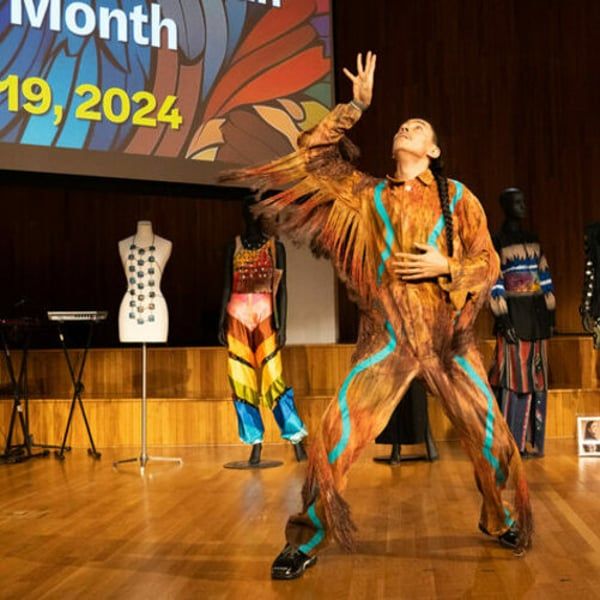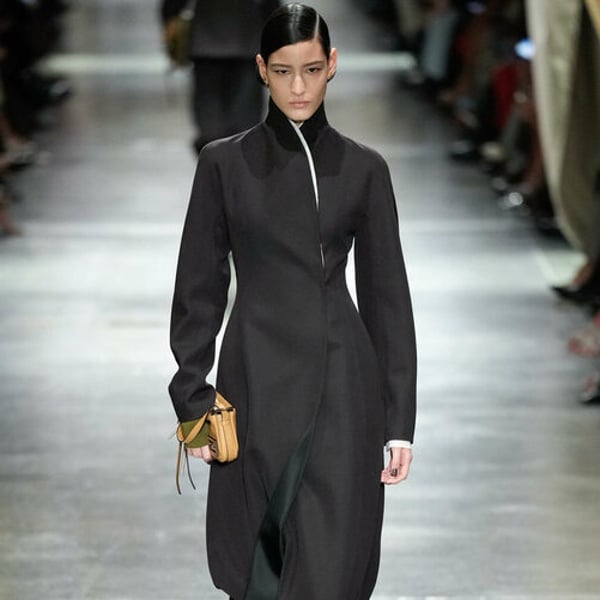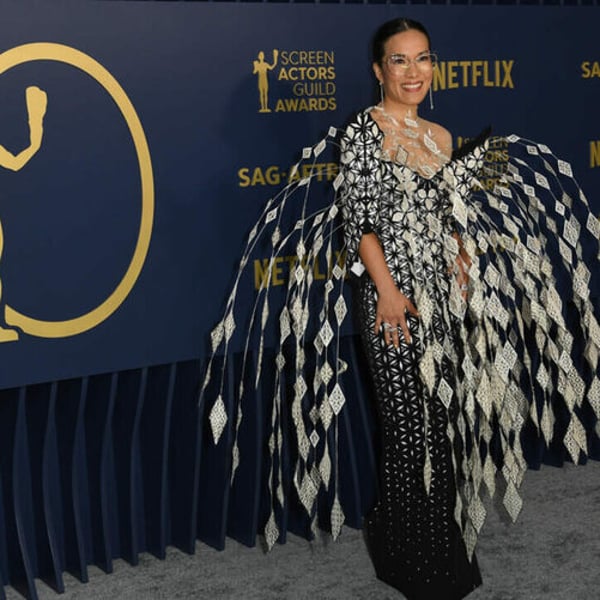Published
November 21, 2024
The origins of the celebration of Native American culture date back to 1916, when Red Fox James of the Blackfeet Nation hosted an event in New York; marking November as the official month to honor indigenous peoples to coincide with harvest time and the famous food that early settlers shared with Native Americans and dating back to 1990. However, it was after 2020 that the emphasis on recognize their cultural history as a way to create solidified opportunities not only for Indigenous communities but for all BIPOC people.
This push helped the Fashion Institute of Technology (FIT), the fashion industry institution at the State University of New York, establish its Social Justice Center to target and support BIPOC youth, college students, and working professionals. in creative fields, including fashion.
This year, the center partnered with 4Kinship, an upcycled clothing brand founded by Navajo Diné woman and FIT graduate Amy Denet Deal, to host a day-long summit to celebrate and promote Indigenous contributions to style.
The day included several panels, performances, and a pop-up shop, and concluded with a fireside chat with Denet Deal, former model, and Shinnecock Nation member Renee Hunter. The talk marked the informative day and how, generationally, the experiences of Native Americans in the fashion industry are evolving.
Dr. Brown began by connecting Hunter and Denet Deal's similar backgrounds, both being from Native American communities, working in fashion, and having a connection to FIT. The similarities, however, end in part due to childhood experiences and the age of each one; Hunter is more top-tier Boomer and Denet Deal is more Gen X.
For Denet Deal, the identification of her indigenous people came later in life, when she was adopted by a white family in Indiana, far from the Denet Deal Navajo Nation in the southwestern United States, when her mother, who was part of of Indian relocation programs, became pregnant.
“Growing up where there were very few BIPOC people, I always felt like I didn't fit in. I could only find it on National Geographic. For me, it was an awakening later in life, after having had a career in corporate design that took me around the world,” said Denet Deal.

After starting the idea for 4Kinship in 2015, the label officially launched when Denet Deal packed up her life in California and moved to New Mexico after her daughter graduated high school in 2019. She arrived determined to become into a member fully immersed in the culture, using the tools he learned in his career to enrich and give back to the community.
According to the founder, she curates her brand's offerings for non-natives to use, but always has special items designed for the community. The brand also features products made by other indigenous artisans.
So, far beyond the retail operation, Denet Deal collaborated with skateboarder Tony Hawk to create a skate park for the community and launched the Indigenous Futures Fund to support the creative community and its artists. next generation.
On the other hand, Hunter, a self-described “urban Indian,” grew up in Brooklyn but spent carefree summers with her Native American family on the Southampton reservation. A chance evening attending the CFDA Awards led to modeling work, where clients wondered how she maintained her “year-round” tan. This led Hunter to retail careers at Bloomingdale's and Sax Fifth Avenue. She is currently a professor at FIT and LIM and a Pratt design critic with a student award named after her.
“Someone asked me outside if I was ever confused about who I was. I always knew who I was and where I was from; my summer camp was a reservation, that's all,” Hunter said, noting that she didn't give away what her background was. they were, but we leave that to the researcher.
Hunter does not see indigenous people as an important part of cultural discussions in the US.

“Everyone is fascinated with mysticism, especially in the West. I don't think we show up, period. The numbers are 0.101% of the population of this country,” he continued. (According to the last census, 2.9 percent of the US population identifies as American Indian or Alaska Native).
During the discussion it was pointed out that Ralph Lauren had championed American style to include references to Native American designs long before anyone used the phrase “cultural appropriation.”
The brand has taken steps to right some of those wrongs, especially as a supporter of a FIT Social Justice Center scholarship for Native American students.
Denet Deal called 2024 a big year for Native American visibility, with “Reservoir Dogs” earning Emmy nominations and “Killers of the Flower Moon” earning Native American actress Lily Gladstone several Best Choice awards. Actress.
“It gives me so much hope to see the younger generation rise to power in creative fields and work in entertainment, fashion and outdoor recreation. They are the future of who we are as Native peoples; support them so we can thrive as community is at the heart of working with the Indigenous Futures Fund.”
Given the community's connection to the land, the community has long practiced sustainability before becoming an industry checklist item, something Denet Deal noted.
“The whole sustainability movement, protecting the planet and the earth, is being led by young people. As indigenous designers, it's inherent in the way we create to honor the earth; it's very natural. The world is catching up “he concluded.
Copyright © 2024 FashionNetwork.com All rights reserved.












